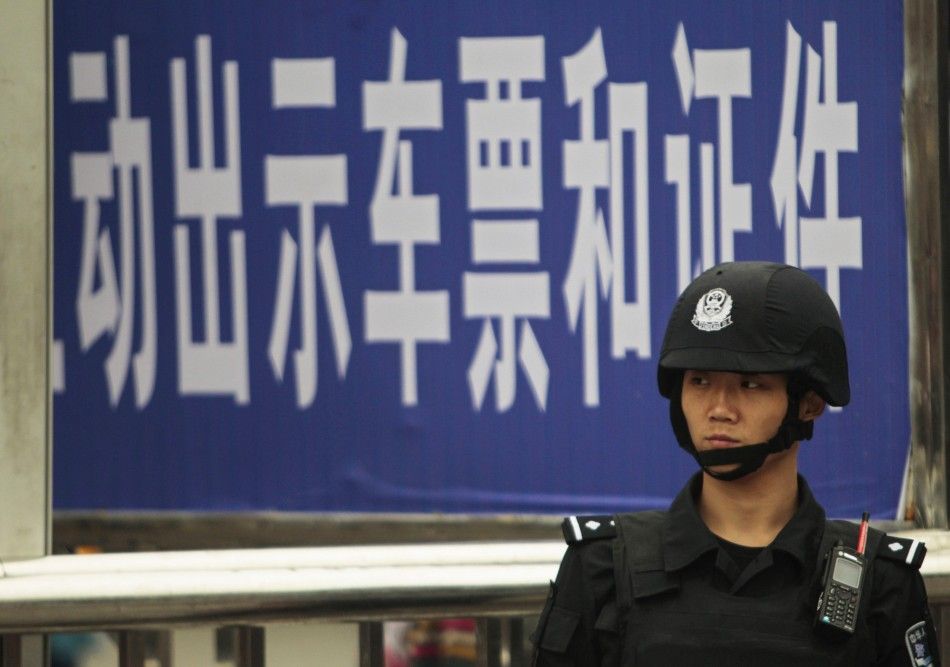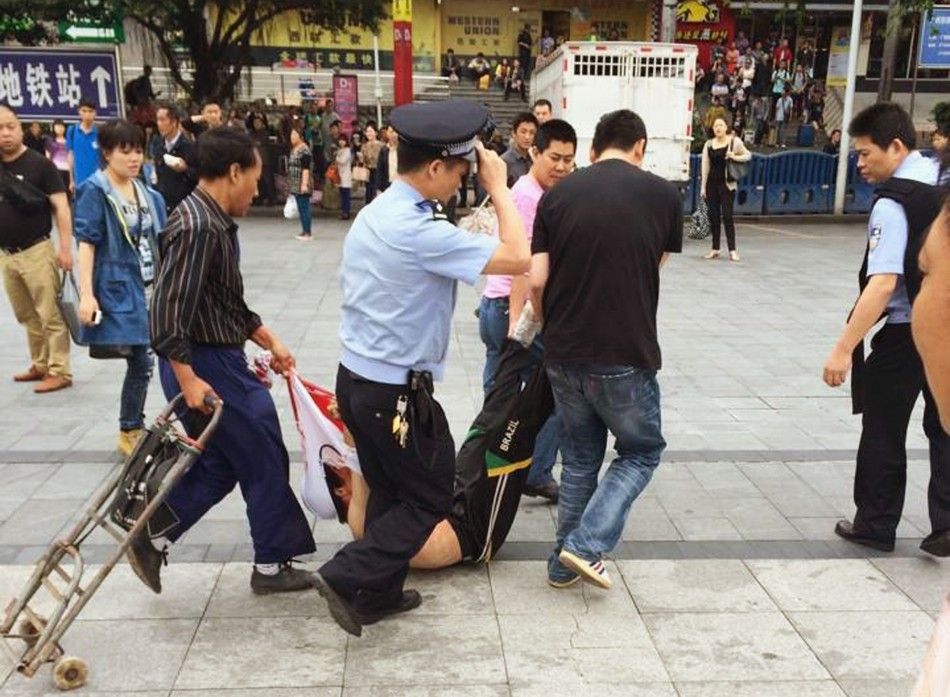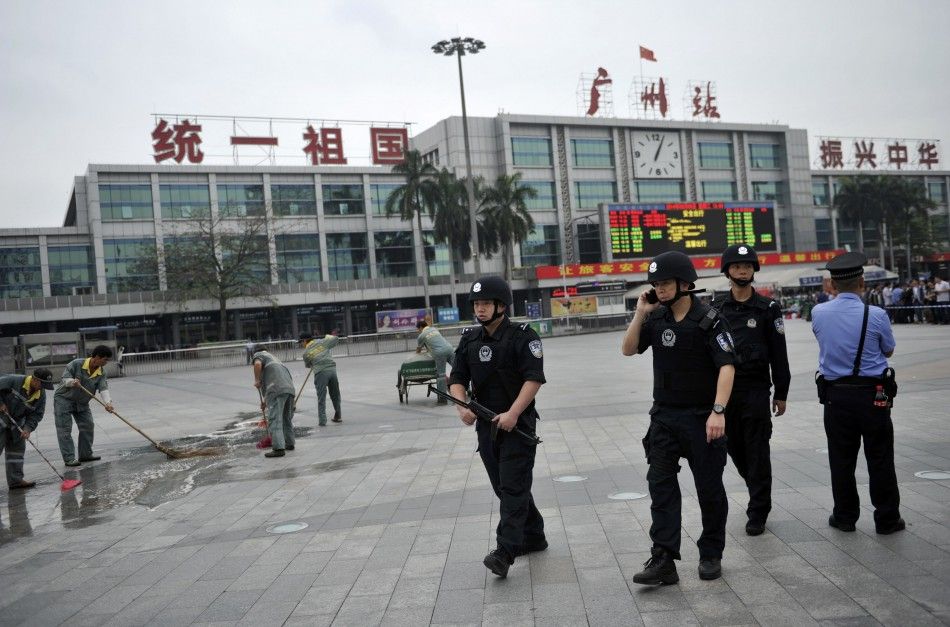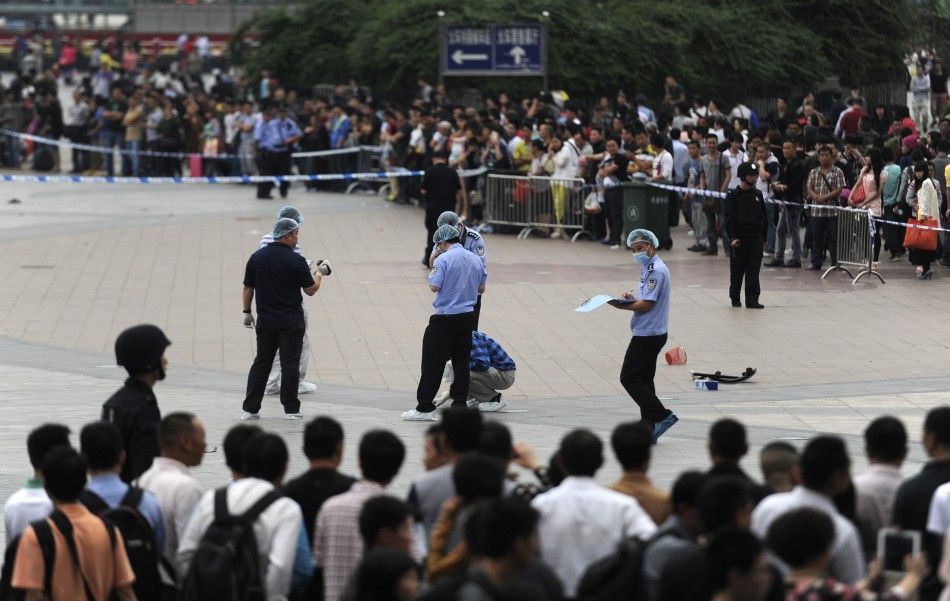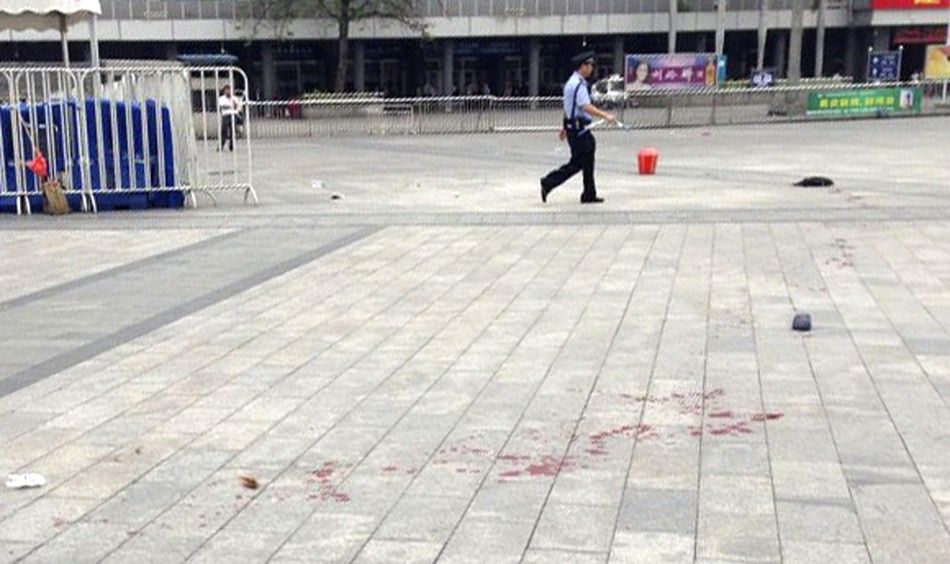China Terrorism Scare Rises With New Train Station Knife Attack, Injures 6 (PHOTOS)
Chinese terrorist attacks are getting rampant. At least six people have been wounded when a lone man went on a knife-wielding rampage outside a railroad station in Guangzhou, China.
The police shot and injured the lone assailant. His victims, two men and two women, are currently being treated in a hospital, the state news agency Xinhua reported. They received no life-threatening injuries. But there was one stabbed in the head and neck and remains in critical condition based on initial reports of Guangzhou Daily.
The recent violence was the third of a spate of attacks at railroad stations since March. It came less than a week after the knife and bomb attack at the railway station in Urumqi, the capital of the north-western region of Xinjiang. Three persons died and 79 others were injured.
Five attackers with knives and machetes killed 29 people and injured more than 140 in early March at a station in the south-western city of Kunming.
Xinhua said the lone assailant in Guangzhou incident was undergoing surgery in a hospital. It remained unclear if the police arrested him.
"The suspect was not carrying his relevant documents, and the police have so far been unable to establish his identity," Xinhua said.
"After verbal warnings were ineffective, police fired, hitting one male suspect holding a knife, and subdued him," Guangzhou police said on their official microblog.
Police have also yet to establish a possible motive for the knife-wielding spree. The government blamed these rail station attacks on the militant East Turkestan Islamic Movement from the western region of Xinjiang.
Meng Jianzhu, the Communist Party's chief official for domestic law and order, ordered the police and law officials to launch a campaign "dedicated to fighting terrorist violence," Xinhua reported.
"Use a heavy hand, strike with a heavy fist, and beat down the arrogance of violent terrorists, ensuring that people live and work in peace," Meng said.
Magnus Ranstorp, a counter-terrorism expert at the Swedish National Defence College, told the Guardian the series attacks seemed to relay there might be more problems lying ahead. "The problem is that terrorism, especially in countries like China, may have some direction but can be very atomised," he said.
Rebiya Kadeer, a critic of the Chinese Communist Party who lives in Washington, said the problem lay on Beijing's repressive policies.
"To someone who knows the region from the inside and has seen the policies the Uighur people have to face, the real perpetrator would be obvious," she told Radio Free Asia.
"A researcher would put the blame squarely on the Chinese government's policies directed at Uighurs. This is exactly why China does not allow international media to investigate the event on the ground. If only they could, the truth would be clear."
